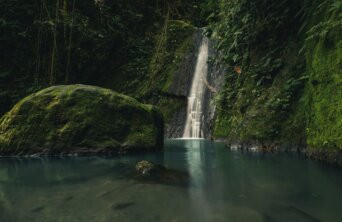- About
- Topics
- Picks
- Audio
- Story
- In-Depth
- Opinion
- News
- Donate
- Signup for our newsletterOur Editors' Best Picks.Send
Read, Debate: Engage.
| topic: | Climate action |
|---|---|
| located: | Brazil |
| editor: | Ellen Nemitz |
Co-written by Valkyria Rattmann
During the first period of President Luiz Inácio Lula da Silva's third presidential term in Brazil, some of his government's environmental priorities have come under question by activists. While the president and key ministers are aligned in promoting sustainable policies, economic interests seem to prevail in important discussions concerning a greener future.
After a great celebration when the Brazilian Institute of Environment and Renewable Natural Resources (Ibama) denied the exploration of the Amazon river's estuary for oil in May, new developments indicate that the idea is not fully ruled out. During an event on 14 June, the Minister of Mines and Energy, Alexandre Silveira, demanded Ibama to provide the Brazilian oil and gas corporation Petrobras with the environmental requirements to proceed with studies in the area.
The statement intensified the concerns around the protection of this fragile ecosystem and, in addition, deepened the tensions between the Ministry of Mines and Energy and the Ministry of Environment.
Furthermore, another announcement sparked concerns around the country's commitment to reducing its carbon emissions. Although widely popular, the government's plan to cut taxes and reduce the prices of some types of cars raises environmentalists' apprehensiveness.
They believe that the current administration should instead invest in better quality public transportation services. About both events - which strengthen the fossil fuel industry - Carlos Bocuhy, president of the Brazilian Institute for Environmental Protection (Proam), told the news website Brasil de Fato that “such proposals are antagonistic to today's civilising context and the limitations that are caused by climate change and also by the constitution of metropolises.”
Brazil's dependence on roads is also strengthened by projects to pave highways cutting through the Amazon rainforest. The population of Amazonas, the biggest state in the Amazonian region, strongly supports the project, which is also endorsed by Lula's government. However, such an investment in mobility could boost deforestation in an already jeopardised area. As specialists warn, paving ways inside the forest also improves the mobility of land grabbers, loggers and illegal miners. In addition to their facilitated access to untouched areas of the forest, criminals who exploit its resources are also easily able to transport the product of their loot through newly paved roads.
Even though economic growth seems to be leading the discussions of Lula's first semester in charge, economic interests could also force Brazil to take action to protect the environment. This is thanks to the conditions of an agreement between two major economic blocs, the European Union and Mercosur.
Recently, the president of the European Commission, Ursula von der Leyen, paid an official visit to Lula, during which she stressed the link between Brazil's sustainability commitments and the agreement's successful implementation. Moreover, Brazil's urge to solidify its leadership in the international environmental agenda — anticipating its role as the COP30 host in 2025 — may pressure the government to bring the environment back to the spotlight.
Image by Conscious Design

